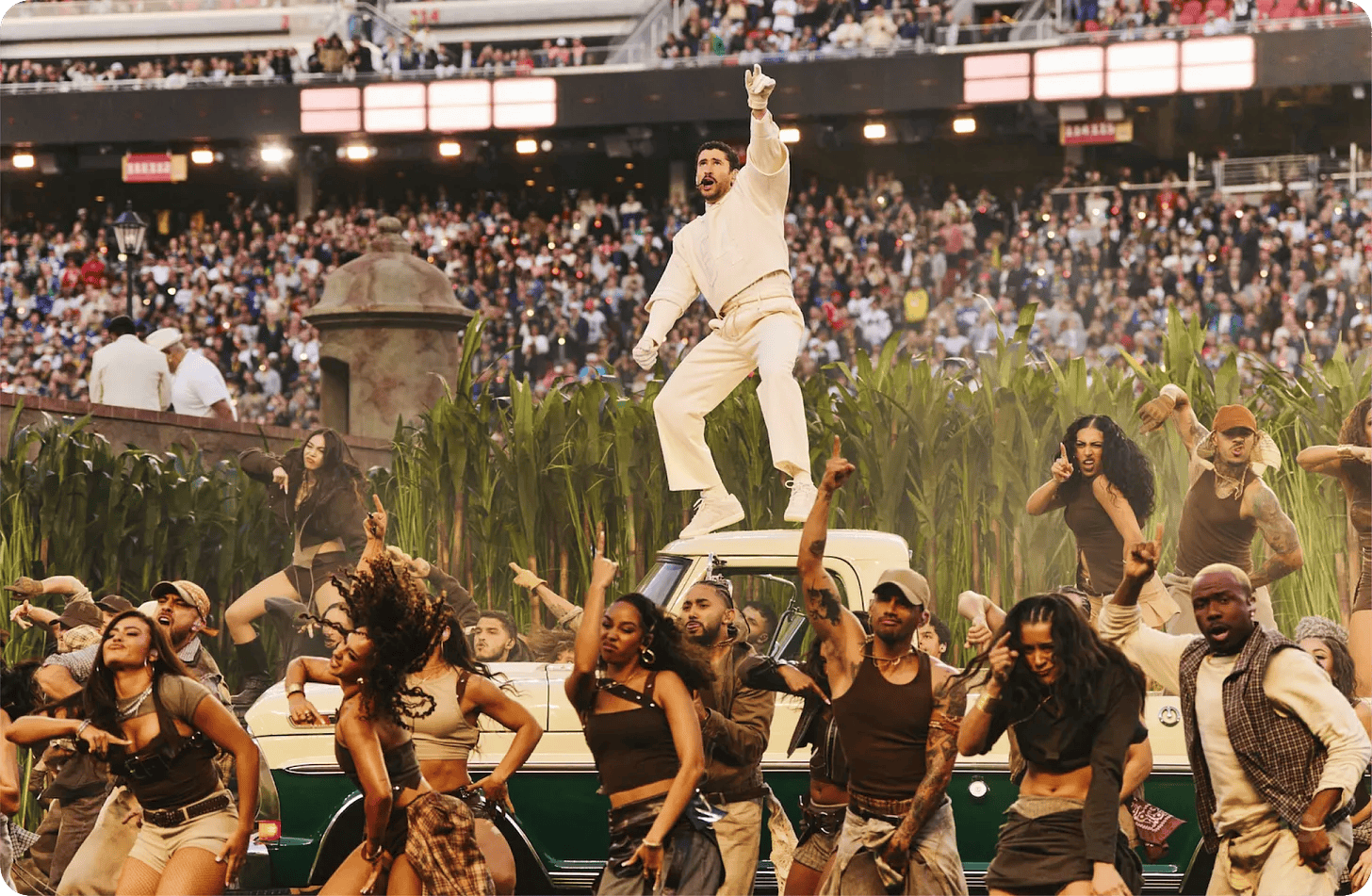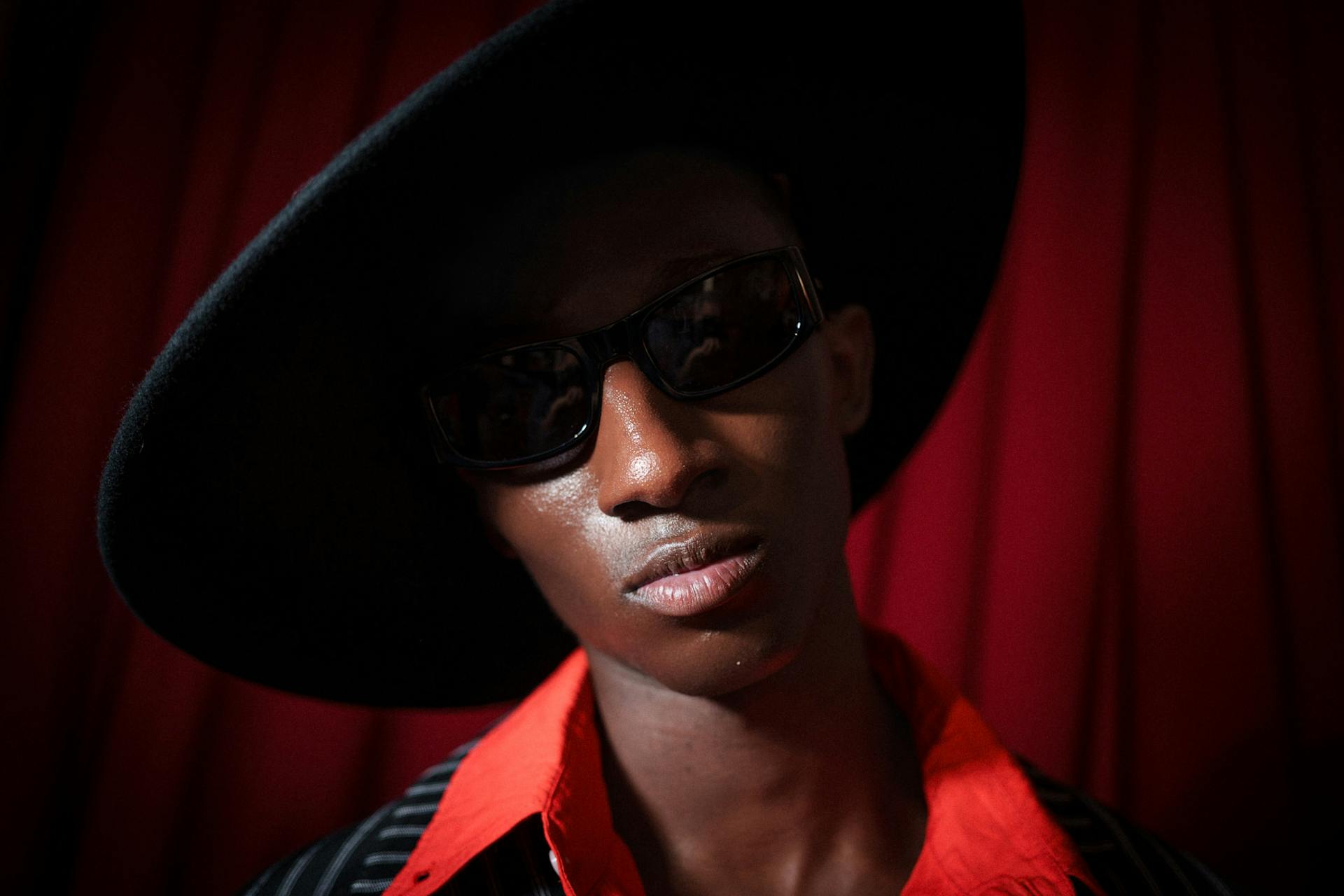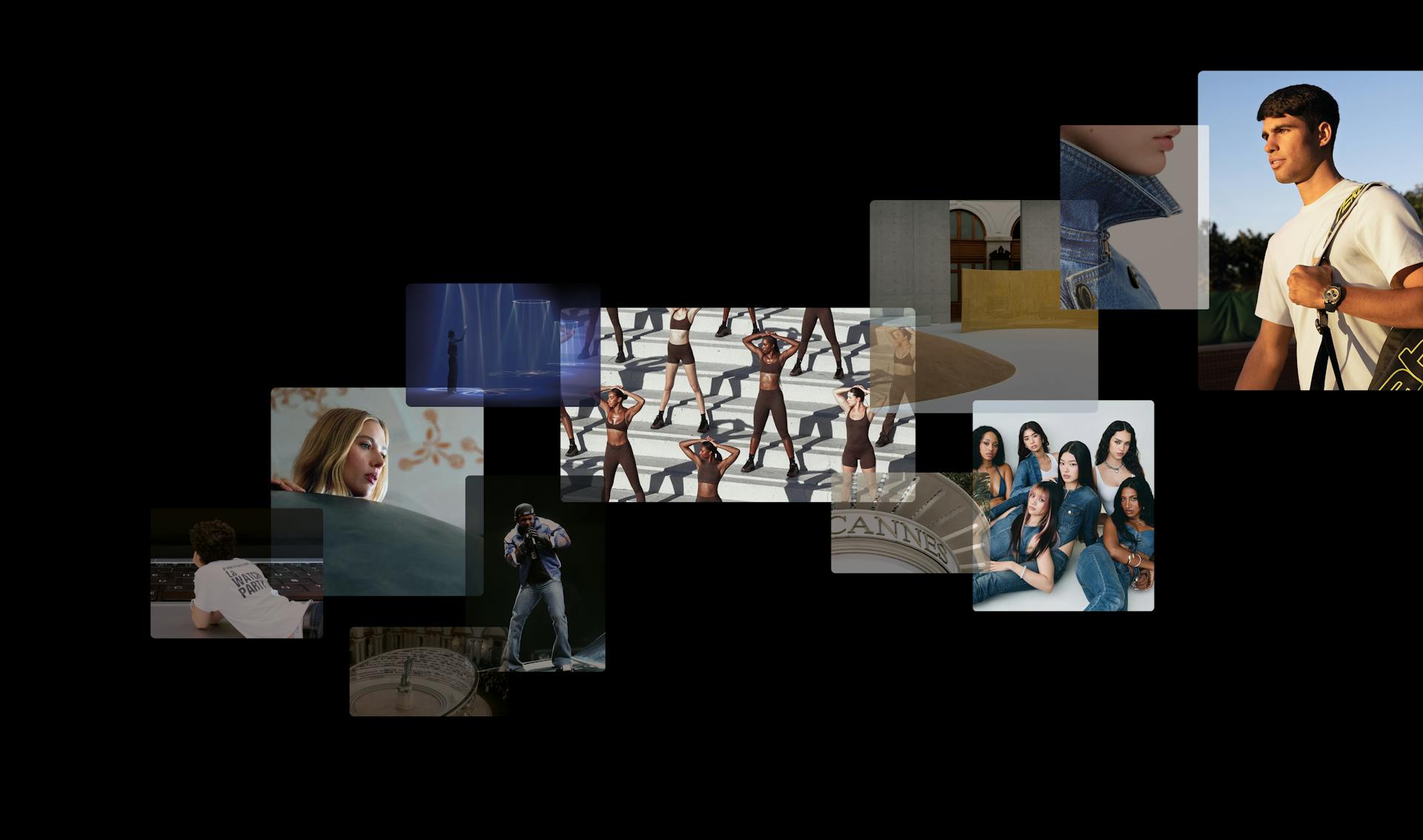Celebrity Endorsements vs. Influencer Partnerships: What's Best for Your Luxury Hotel?
Standing out in the competitive luxury hotel market means combining prestige with creative marketing tactics like celebrity endorsements or influencer partnerships. Unsure which option will best boost your hotel's visibility and guest loyalty? Our detailed analysis provides clear, data-driven advice to help you decide. By setting clear marketing goals and choosing the right influencer strategy, you can make your high-end hotel the top choice for guests looking for a luxurious stay.
Introduction to Influencer Marketing in the Luxury Hotel Industry
The luxury hotel industry has changed its approach to marketing over time. Previously, traditional public relations and word-of-mouth referrals were the most common methods. However, the industry has now adopted a new trend of collaborating with brand ambassadors and digital influencers for marketing purposes. This method involves partnering with famous social media figures with a substantial following to promote hotels. The aim is to create genuine relationships and appeal to guests who desire unique and personalized experiences.
On the other hand, celebrity endorsements use famous personalities to give hotels a touch of glamour and prestige. This can quickly boost a hotel's image and online presence but tends to come with a hefty price tag.
Defining Celebrity Endorsements
Celebrity endorsements have become a popular marketing strategy in the luxury industry. The idea is to use the fame and status of well-known personalities to increase brand visibility and appeal. These endorsements typically involve connecting a brand with celebrities, who use their public image and influence to promote the product or service. This can be done through high-profile advertising campaigns, limited-edition collaborations, or public appearances. By associating the brand with a famous figure, marketers aim to create an aspirational image that appeals to customers who want to emulate the luxurious lifestyle associated with the celebrity.
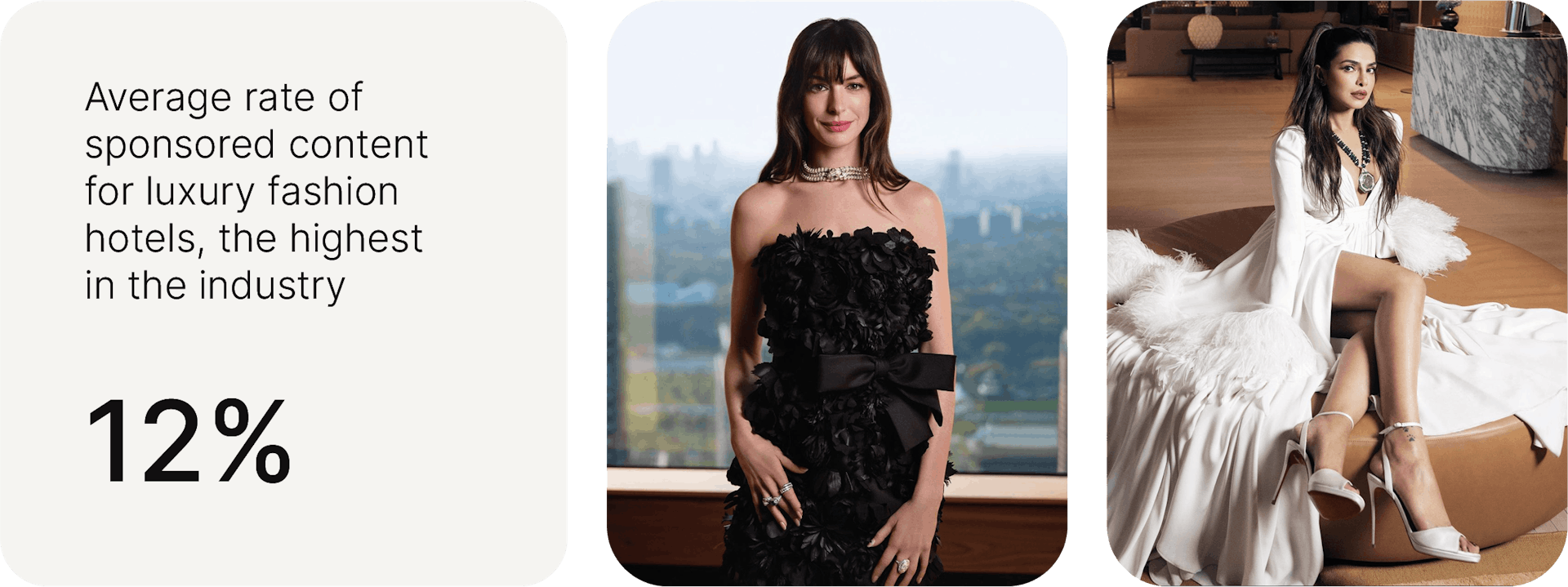
Understanding Celebrity Endorsements in Luxury Hospitality: Impact, Strategy, and Outcomes
Celebrity endorsements significantly impact brand image and how guests perceive a brand. When a famous person endorses or posts about a brand on social media, it can dramatically increase its visibility and appeal. For example, luxury fashion and jewelry brands such as Bulgari, Armani, and Versace use their brand ambassadors to showcase their hotels, not just their products. This is why fashion-based hotel brands have more sponsored content within the luxury hospitality sector, averaging around 12%, compared to traditional luxury hotels, which average around 3%. As a result, luxury fashion hotels get most of their online visibility from celebrity endorsements, making up an average of 76%.
Pros and Cons of Using Celebrities to Promote Luxury Hotels
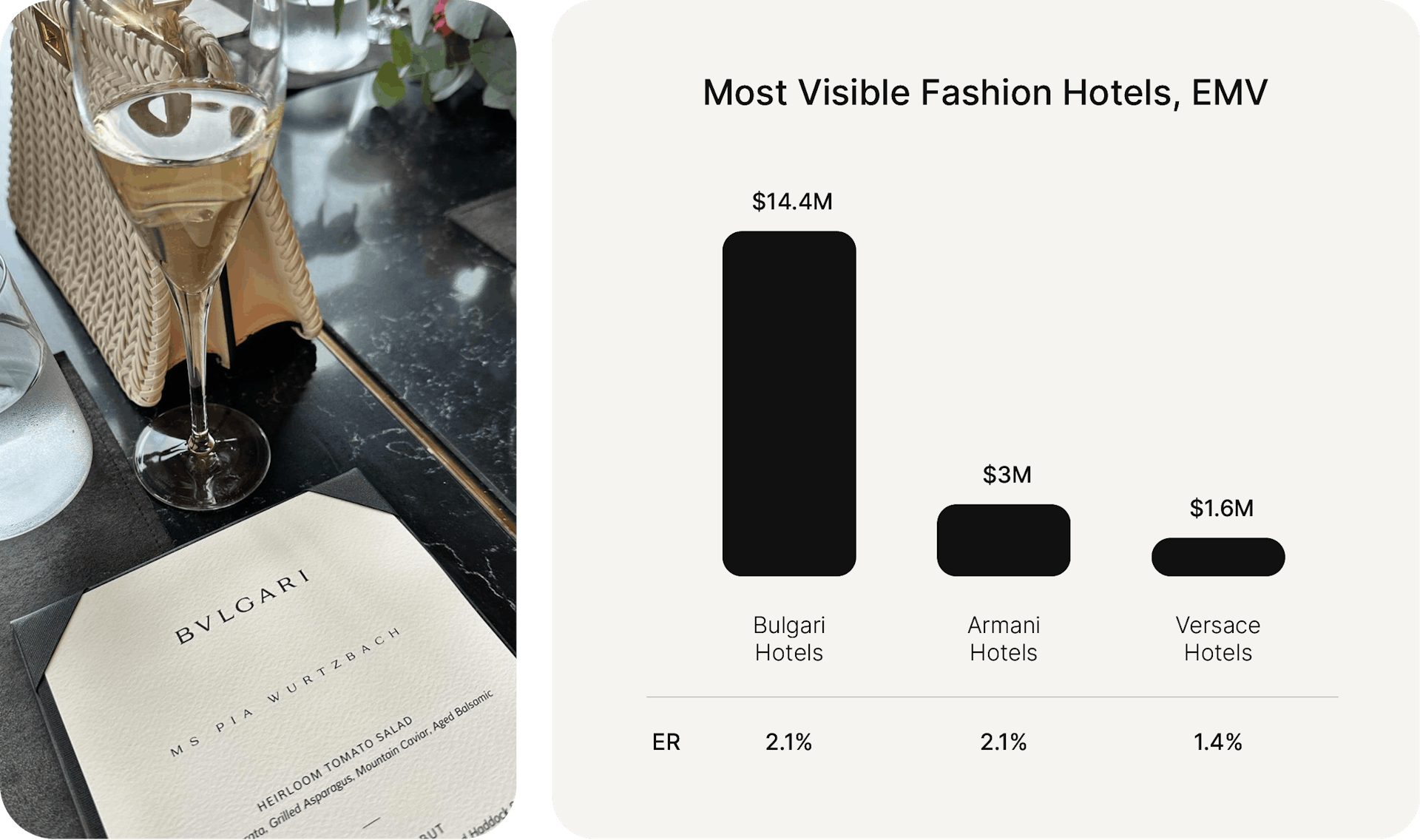
The impact of celebrity endorsements on a hotel's brand image can be significant and multifaceted. A celebrity partnership can boost interest and elevate the perception of luxury and exclusivity. However, potential drawbacks include high up-front costs and the risk of adverse events or scandals. These factors must be carefully considered, as aligning the celebrity's image with the brand's values is crucial for a successful endorsement.
Dealing with these high-stakes ventures requires careful consideration. Bulgari's strategic use of its brand ambassador, Priyanka Chopra, exemplifies a well-executed celebrity collaboration that appeals to a broad audience. With only four Instagram posts, Chopra generated 33% of Bulgari Hotels' total Earned Media Value (EMV) from 2023-2024. This underscores the power of carefully curated promotional content that resonates with the audience.
Case Study: Successful Celebrity Endorsements in the Luxury Hotel Sector
Bulgari and actress Anne Hathaway have had a strong partnership since she became a brand ambassador in May 2022. Hathaway has been instrumental in generating significant visibility for Bulgari, accounting for 22% of their EMV since joining the team.
Bulgari has also leveraged Hathaway's influence to promote their hotel branch. Given her association with the brand, doubling the activation events for Bulgari's jewelry and hotels is the perfect combination to increase impact and benefit both sectors.
Between 2023-2024, Hathaway posted a single Instagram post to promote the hotel, but even with just one post, her influence was so profound that she drove a staggering $1.76M in EMV. This accounted for 12% of the brand's total visibility for the year. Her engagement rate also soared to 6.4%, which is a testament to her highly engaged audience and the exceptional performance of content from high-profile and branded events on social media
Exploring Influencer Partnerships
Influencer partnerships have become a new addition to luxury hotels' marketing strategies. These partnerships use digital connectivity to create authentic engagement with potential guests. In today's world, people value authenticity and relatability, and these partnerships offer an interactive and scalable form of marketing. Luxury hotels can connect with potential guests more personally and directly through these partnerships.
What are Influencer Partnerships and How Do They Work?
Influencer partnerships are collaborations between luxury hotels and digital influencers. These partnerships offer the influencer an unforgettable experience, such as a free stay or exclusive access to amenities and services, with the expectation that the influencer will share their knowledge with their followers. The influencer can share their experience through organic content such as posts and stories or sponsored content that promotes the hotel. The content created is designed to showcase the hotel's unique offerings and increase its appeal through the influencer's personal narrative and visual storytelling.
Different Types of Influencers
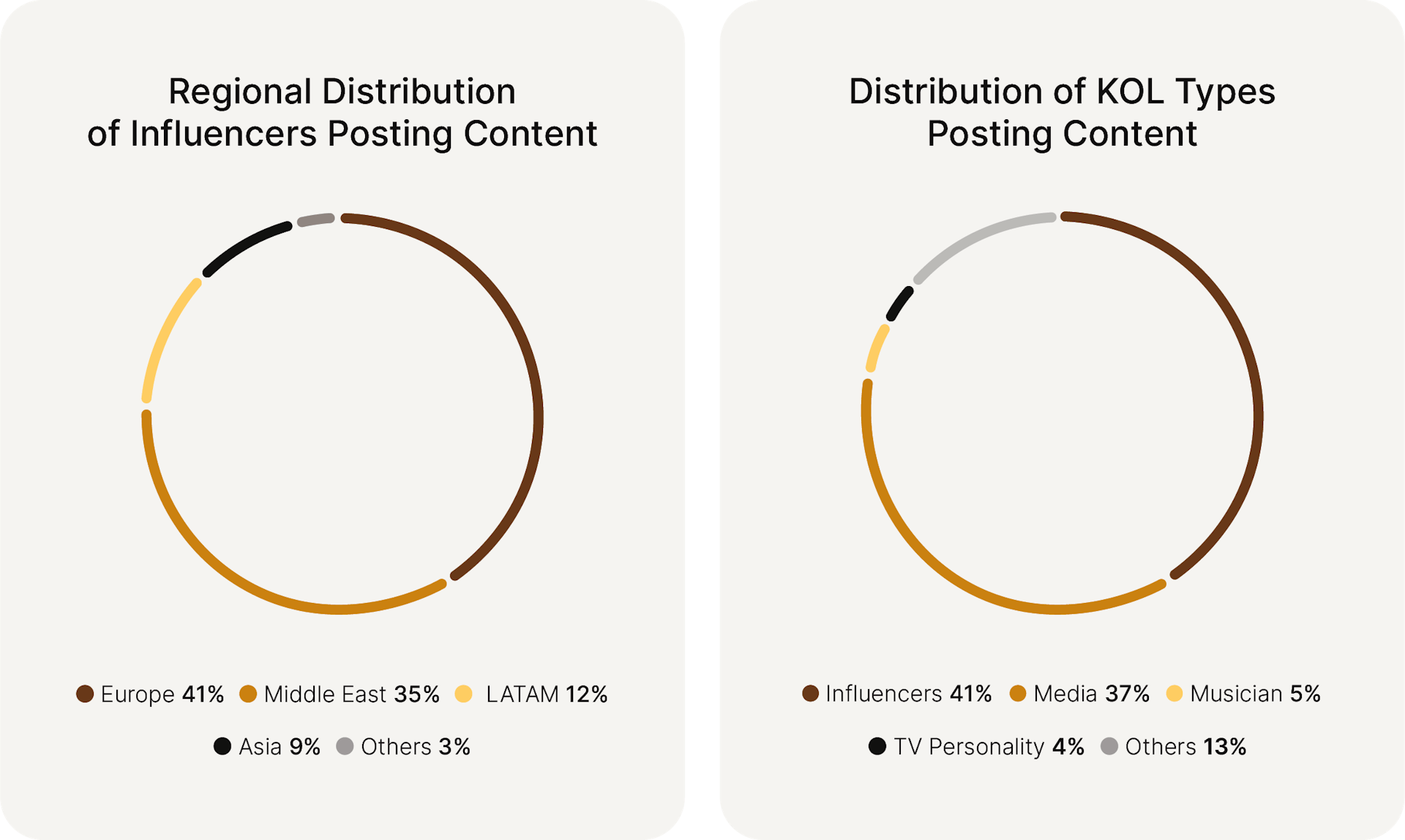
In influencer marketing, individuals are often classified into three categories based on their audience size and engagement levels: micro, macro, and mega-influencers. Despite having a smaller following, micro-influencers are highly valued for their higher engagement rates, frequent posts, and close community ties, making them suitable for niche markets.
Macro-influencers, with a larger audience, provide a broader reach and help create brand awareness. Mega-influencers, with a following surpassing one million, offer the widest reach and can significantly improve a hotel's profile on a global scale. Each category serves different marketing goals, and the choice depends on the hotel's specific objectives and target demographics.
Challenges and Considerations in Managing Influencer Relationships
Influencer partnerships offer many benefits for hotels, but they also come with challenges that need careful management. One of the most critical concerns is authenticity. Hotels must ensure that the influencers they partner with genuinely resonate with their brand values and can authentically endorse their experience.
It's also crucial to manage expectations and establish clear communication and contractual agreements to define the scope of the partnership. To evaluate the success of these collaborations, measuring influencer content's impact on brand visibility, guest engagement, and, ultimately, bookings and revenue is essential. By addressing these considerations, luxury hotels can build effective and mutually beneficial influencer relationships, enhance their marketing strategy, and solidify their presence in the competitive luxury hospitality market.
Case Study: Effective Influencer Partnerships in the Luxury Hotel Industry
Exploring Influencer Partnerships
Influencer partnerships have become a new addition to luxury hotels' marketing strategies. These partnerships use digital connectivity to create authentic engagement with potential guests. In today's world, people value authenticity and relatability, and these partnerships offer an interactive and scalable form of marketing. Luxury hotels can connect with potential guests more personally and directly through these partnerships.
What are Influencer Partnerships and How Do They Work?
Influencer partnerships are collaborations between luxury hotels and digital influencers. These partnerships offer the influencer an unforgettable experience, such as a free stay or exclusive access to amenities and services, with the expectation that the influencer will share their knowledge with their followers. The influencer can share their experience through organic content such as posts and stories or sponsored content that promotes the hotel. The content created is designed to showcase the hotel's unique offerings and increase its appeal through the influencer's personal narrative and visual storytelling.
Different Types of Influencers
In influencer marketing, individuals are often classified into three categories based on their audience size and engagement levels: micro, macro, and mega-influencers. Despite having a smaller following, micro-influencers are highly valued for their higher engagement rates, frequent posts, and close community ties, making them suitable for niche markets.
Macro-influencers, with a larger audience, provide a broader reach and help create brand awareness. Mega-influencers, with a following surpassing one million, offer the widest reach and can significantly improve a hotel's profile on a global scale. Each category serves different marketing goals, and the choice depends on the hotel's specific objectives and target demographics.
Challenges and Considerations in Managing Influencer Relationships
Influencer partnerships offer many benefits for hotels, but they also come with challenges that need careful management. One of the most critical concerns is authenticity. Hotels must ensure that the influencers they partner with genuinely resonate with their brand values and can authentically endorse their experience.
It's also crucial to manage expectations and establish clear communication and contractual agreements to define the scope of the partnership. To evaluate the success of these collaborations, measuring influencer content's impact on brand visibility, guest engagement, and, ultimately, bookings and revenue is essential. By addressing these considerations, luxury hotels can build effective and mutually beneficial influencer relationships, enhance their marketing strategy, and solidify their presence in the competitive luxury hospitality market.
Case Study: Effective Influencer Partnerships in the Luxury Hotel Industry
Belmond is well-known for implementing a highly effective influencer marketing strategy in the luxury hotel industry. They have consistently outperformed their competitors in terms of partnerships with influencers, visibility, and content creation. Their success is attributed to their collaborations with travel influencers, tastemakers, and artists who create captivating content with compelling narratives, resulting in high visibility and successful partnerships.
Belmond's strategy of partnering with macro-influencers is exemplified by their collaboration with photographer and author Sam Youkilis. Since 2023, Youkilis has posted multiple times for Belmond, generating a total of $482K in EMV. This partnership has been successful because Youkilis has a keen eye for beauty and design, which enables him to create a narrative that aligns with Belmond's brand image and intrigues like-minded audiences about the experience of staying in a Belmond property.
Comparative Analysis: Celebrity Endorsements vs. Influencer Partnerships
This section brings forth a point-by-point comparison of the two marketing behemoths, weighing their efficacy across various metrics.
Cost-Effectiveness and ROI Comparison
Working with influencers in marketing campaigns is often perceived as cost-effective. However, it's essential to consider the long-term expenses of managing multiple partnerships and collaborations. Despite this, partnering with influencers has proven to drive direct bookings and increase engagement rates, which can ultimately result in a favorable return on investment. Therefore, weighing the potential benefits of influencer marketing against the costs is essential before making any decisions.
Authenticity and Trust: Which Approach Feels More Genuine to Consumers?
The genuine voice of an influencer can connect better with their followers. However, a celebrity whose image matches the brand well can offer an endorsement with significant influence and credibility, generating trust in the brand comparable to that of the influencer, albeit on a larger scale.
Long-Term Impact and Sustainability of Marketing Efforts
Incorporating influencers into your brand strategy can be an effective way to create long-term engagement with your audience. By partnering with individuals with a dedicated following, you can leverage their influence to organically expand your reach and build a loyal community around your brand.
On the other hand, if you're looking to create a more immediate impact, a well-executed campaign featuring a celebrity can be a powerful tool. Associating your brand with a well-known figure can quickly grab attention and generate buzz. While this approach may not have the same long-term effects as working with influencers, it can create a memorable impression that lasts well beyond the initial campaign.
Choosing the Right Fit for Your Hotel's Brand Identity and Marketing Goals
Marketing is critical for a luxury hotel's success, and it's important to align marketing efforts with the hotel's core identity. Effective campaigns clearly reflect the hotel's values, mission, and vision. Celebrity endorsements add sophistication, while influencers can make a contemporary narrative more engaging. Collaborating with influencers sharing the hotel's values and audience can create impactful marketing.
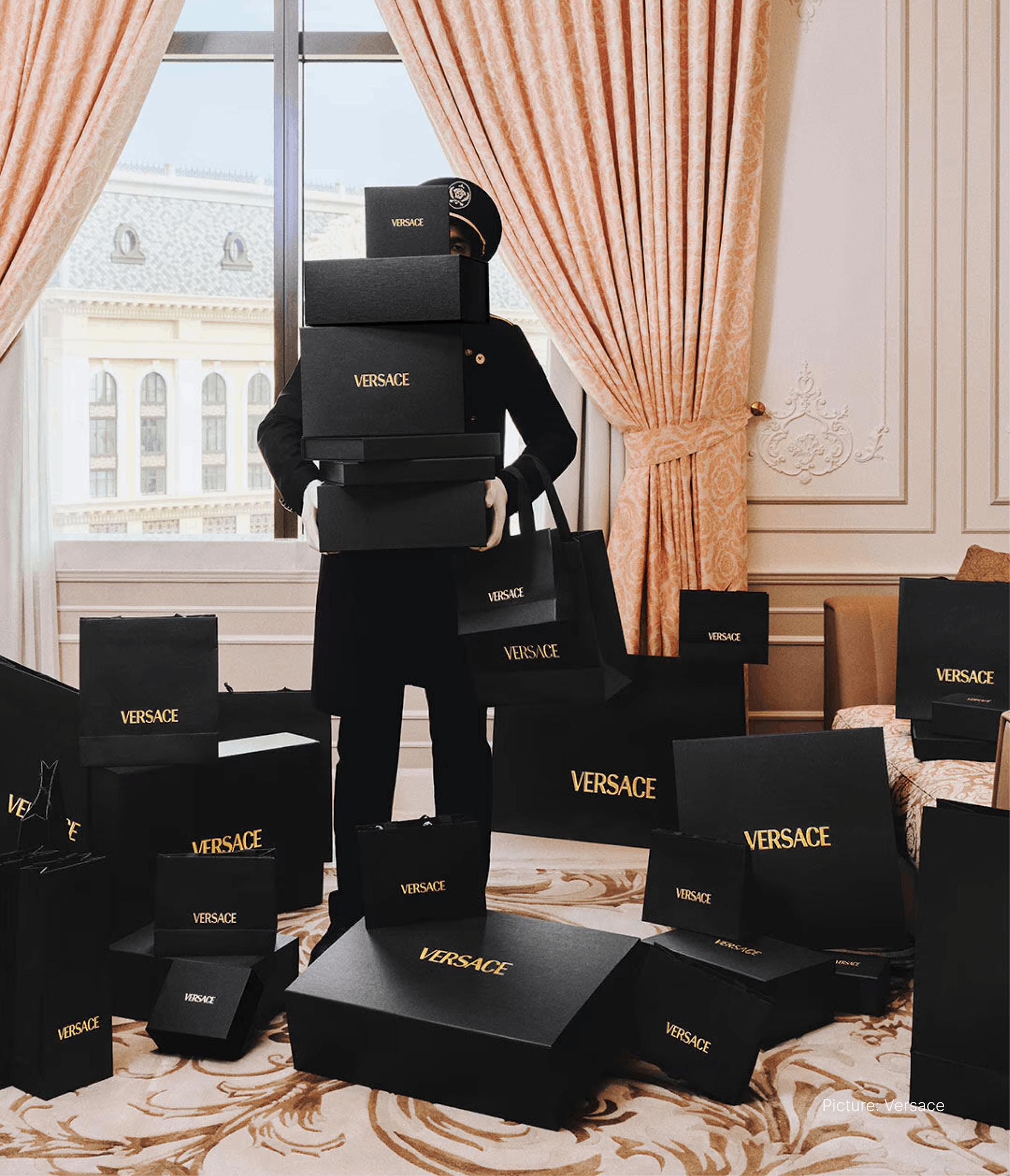
Strategic Implementation: How to Choose and Leverage the Best Option
In this section, you will find a comprehensive guide that provides luxury hotel marketers with a practical approach to selecting and leveraging the potential of celebrity endorsements or influencer partnerships. By following the guidelines presented here, hotel marketers will learn how to identify the right celebrity or influencer to partner with, how to develop a tailored marketing campaign that aligns with their brand messaging, and how to effectively utilize the power of celebrity endorsements or influencer partnerships to boost brand awareness, increase bookings, and ultimately drive revenue growth.
Assessing Your Hotel's Needs and Marketing Objectives
To ensure the success of your hotel's marketing strategy, it's essential to have a comprehensive understanding of your goals and target audience. Are you looking to enhance your hotel's reputation and attract a wider audience through celebrity endorsements, or do you want to engage a specific group through targeted influencer promotions? Answering these questions will help you tailor your marketing efforts effectively and reach your desired audience.
Identifying and Targeting the Right Celebrity or Influencer
Selecting the right partner, be it a celebrity or an influencer, is not merely based on their popularity but on how much they align with your brand's values and the audience demographics you're trying to reach. Finding someone whose values resonate with your brand to build a mutually beneficial relationship is crucial. This ensures that your partnership will more effectively achieve your goals and reach your intended audience.
Crafting Compelling Campaigns: Best Practices for Collaboration and Content Creation
The key to a successful marketing campaign is the story it tells. It must be engaging and relatable, whether about a famous person's adventures or an influencer's everyday life. The campaigns that tend to get the most attention involve travel, are presented in a video format, or are connected to high-profile events or physical brand activations.
Monitoring and Measuring Success: Tools and Metrics to Consider
In today's data analytics era, hotels increasingly rely on data-driven decision-making to access rewards. They must carefully measure their marketing investments' reach, sentiment, and conversion rates. To assess the effectiveness of their influencer marketing campaigns, they should consider essential metrics such as the average engagement rates to see if their content is resonating with audiences. Additionally, the rate of visibility can be derived from the content's amount of impressions, engagements, or media value calculated by cost per click. It's also essential to consider metrics such as ROI and conversions if you track influencer links that lead to bookings, promotions, or products. With these metrics, you can efficiently judge your campaign's effectiveness and the influencers you partner with.
Adapting and Evolving Your Strategy in Response to Market Trends and Feedback
Marketing is an ever-changing landscape where market trends and audience preferences evolve rapidly. This implies that any marketing strategy must be highly adaptable and capable of pivoting quickly and smoothly in response to feedback and results. A successful marketing campaign necessitates a profound understanding of the market and the audience and the ability to adjust swiftly to changing circumstances and ineffective influencer collaborations. The significance of flexibility in marketing cannot be overstated, as it is the key to staying ahead of the curve and accomplishing your objectives.
Conclusion: The Future of Luxury Hotel Marketing
In the world of luxury hotels, the use of celebrity endorsements and influencer partnerships is becoming increasingly popular. Combining the two as hotels navigate the digital age seems to be the most effective strategy. However, it's crucial to maintain a balance between authenticity, sustainability, and creating content that is both exclusive and engaging. For luxury hotels, success will depend on navigating the relationship between celebrities, influencers, and their audiences in the ever-changing digital landscape.

